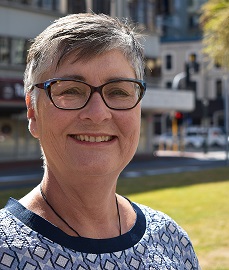Challenge for change as spotlight on sector
Alzheimers NZ Chief Executive Catherine Hall highlights why change is needed in the sector as dementia mate wareware is in the spotlight.


With all the disruption in the lead up to the 2023 elections, it’s been great to see the aged care sector is managing to stay top of mind for some – although not always for the right reasons.
The Restaurant that Makes Mistakes on TVNZ has been a delightful insight into how much people living with dementia mate wareware are capable of with the right support.
It’s been a positive experience for everybody involved and the volunteers are treated with dignity and respect and able to be themselves. So often we only see people with dementia mate wareware through the eyes of the stigma and discrimination associated with the condition, and this programme provides a very different and welcome perspective.
This show, and the associated media attention, may have been a driving factor in the increase in community-based refferals we’ve seen. It’s great people are reaching out for help and being referred from other parts of the system, as both can be barriers for people to get the help they need.
However, these services remain severely underfunded and as a result are only meeting a fraction of the current needs. We estimate about 30,000 people with dementia mate wareware and their whānau are currently missing out on the community support they need.
The historic underfunding the sector faces is squeezed further by the increased pressure on primary care services as we head deeper into winter. This is much more of an issue in the community space than it is anywhere else, yet the community sector is where people spend most of their time.
Some services are struggling to keep the lights on, so the increasing demand just adds to the huge pressure they are under. The increasing demand is not a surprise given this has been forecast for many years, but even so, Te Whatu Ora has no plans as yet to address the underfunding or relieve this pressure on these community-based dementia mate wareware services. Although they released their Health Workforce
Plan recently – and it’s a great first step – it’s disappointing to again see the lack of focus on the community and primary care parts of the system.
It’s early days but to be successful the Plan does need to recognise and take account of the fact that, even though there are different funding mechanisms across the system, the pipeline for staff is shared, staff move between the parts of the system, and the community and primary sector is seen as part of the solution for the rest of the sector.
It is also not clear that the Plan has taken account of the amount of unmet need in the community sector – something non-government organisations are very aware of! And, it’s also not clear that the impact of the ageing population on the workforce has yet been considered.
There is no question that without a health workforce there is no health system. There does need to be systematic processes to bring the huge Te Whatu Ora workforce together and then all the parts of the system together, and delivering on the promise of Pae Ora relies on the workforce operating differently.
Where I struggle is the view that is being expressed that if the system gets it right for its staff it will get it right for the people using the system – there is plenty of evidence that the health workforce often has a very different perspective on what success looks like to the people using the system. It’s also hard to see how this approach delivers on the Pae Ora promise of putting people and whānau at the centre of the system.
It’s been interesting to see National’s health spokesperson and MP for Northland Dr Shane Reti has witnessed these pressures firsthand while shadowing Hato Hone St John Ambulance crews around the country.
There is a shortfall of experienced doctor and nurses everywhere, especially in our hospitals and ED wards, as he saw and there is no doubt we need better support for our emergency services. But fixing those workforce issues won’t help deliver better services at a community level – where we all live and where most of us get our health services. To improve those services, we need the long standing and historical funding issues in community services and in primary care to be fixed.
And these challenges have been reflected in other media. It was disappointing (but not surprising) to see research that 30 per cent of trainee nurses surveyed nationwide do not want to work in aged care.
This is alarming as the proportion of our over 65’s popultation will continue to grow over the next few decades. We are going to have much larger numbers of older people with quite different expectations (eg living much longer) which won’t be met with the current systems.
There is no real focus on what it means to have an ageing population, and I fear as the world fundamentally changes, we won’t be prepared as a society.
The dire situation was recently highlighted in another piece by the Selwyn
Foundation. As their Chief Executive Denise Cosgrove said: “Seventy years on and not much has changed for a significant proportion of New Zealand’s seniors”.
Our kaumatua or elders are the wisdom bearers of our people. How can Government continue to justify ignoring such a large part of our population? Let’s hope our next Government has the foresight to plan ahead for our ageing population – they’ll be part of it one day.

